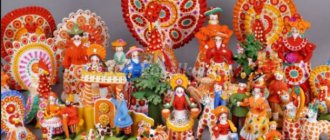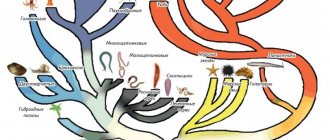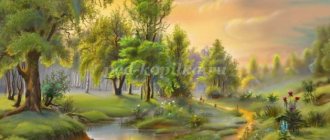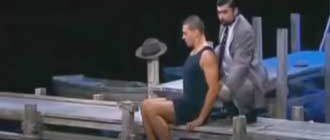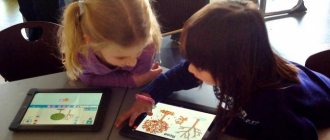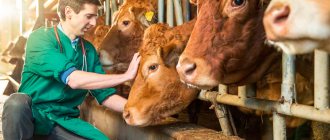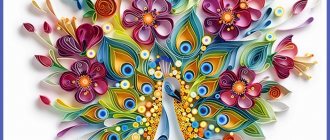Summary of educational activities for familiarization with the outside world in the senior group. Theme “My small Motherland”
Summary of educational activities for familiarization with the outside world in the senior group.
Theme “My Small Motherland” Goal: Continue to form the concept of “Small Motherland” Objectives: • consolidate children’s ideas about their native land, which is part of our big country, about the big and small Motherland, that for every person a small Motherland is the place where he was born, where he lives. • develop cognitive interest in knowledge about the small Motherland, speech activity, thinking during the board game; • expanding knowledge about the historical past; • cultivate love for your small Motherland. Integration of educational activities: cognitive development, speech development, social and communicative development. Types of children's activities: playful, productive, communicative. Preliminary work: Excursions to the sights of the village, to the local history museum, along the streets of the village. Reading and learning poems about the Motherland, writing stories about the sights of the village, looking at photographs from the books of local historian A.A. Bakhmatov. Material: Demonstration: photographs of the village, map, audio recording of the song “Anthem of the village of Yurla” Handouts: felt-tip pens, album sheets, board game “The Hut of Our Ancestors”
Content of organized activities
1. Organizational moment. Greetings in a circle: Hello, blue sky, Hello, golden sun, Hello, free breeze, Hello, little oak tree, We live in our native land, I greet you all! (Children perform movements in accordance with the text) 2. Main part. Guys, look at this map. This is a map of our country. What is our country called? Children. Russia. A map can tell a lot about our country. Russia is a large and strong state with many cities, lakes, rivers, and forests. We are proud of our great country. But each of us has our own small homeland. The audio recording is playing: “Waltz about Yurla”
- What is the song about?
Today we will talk about our small Motherland - Yurla. - How many of you know what a small Motherland is? Children's statements. (Small Motherland is the corner where we were born, the place where we live, where our home is, where people close and dear to us live. These are forests, fields, rivers. This is our village. This is the place where close people live: mom, dad, grandfather, grandmother. This is the place where our kindergarten is located. This is the place that people miss when they are in a distant land. The most precious thing a person has is the land where our ancestors worked).
Yes, each of you answered my question correctly.
3. Drawing up a model about the small Motherland. Do you want to see what a small Motherland it is on the big planet Earth. (The teacher invites the children to the table on which there are album sheets and markers)
- What planet do we live on?
Children. Earth. Take a circle. This is planet Earth. — What is the name of our country? Children. Russia. Take a red pencil and draw a smaller circle in the large circle. This is our Russia. There are many wonderful countries on earth, people live everywhere, but Russia is an extraordinary country, because it is our big Motherland. Adults also call Russia the Russian Federation. — What is the name of the region in which we live? Children. Permian. Take a blue pencil and draw another circle inside the red circle. This is our Perm region. Take a green pencil and draw another circle inside the blue circle - this is our small Motherland - Yurla. Small Motherland - An Island of Earth Under the window, currants and cherries have blossomed. And under it is a bench. My affectionate little Motherland! 4. Ball game “What is our village?” Educator: Now we will play a game where each of you must tell what our village is? I ask you a question: what is our village like? - Our village...? (Beautiful, clean, green, modern, loved, amazing, blooming, magnificent, hospitable, multinational, wonderful, wonderful, etc.). 5. Game “Village Streets” Guys, we have many streets in our village, let’s remember the names, on which street does each of you live? (Children take turns passing the flag to each other and calling their street). 6. Stories about the small Motherland. Children, do you love your small homeland - Yurla? (Answers.) You can only love what you know well. The more we know about our village, the more we will love it. I suggest going to the table, taking any photograph of the sights of our village and telling it. (Children's stories about Yurla)
We love our village and are proud of our village, we know that our village is wonderful and modern, but we also need to know its history, how our ancestors lived on this land.
A long time ago, in a village, there lived a family who left us a large chest of goodness as an inheritance. Let's open it now and tell the story. How our ancestors lived, just a century ago. (The teacher takes out a board game from the chest.)
I suggest you play the
game “The Hut of Our Ancestors.” The hut is the dwelling of a simple Russian peasant and his family. Here, in a peasant house, every piece of household utensil is a symbol of the people’s life, how the peasants lived and how they worked, doing household chores around the house. Household items are imbued with the Russian spirit and convey that image of the difficult peasant life in Rus'. Guys, before you are pictures of the dwellings of our ancestors, you see the atmosphere of peasant life. Your task is to find those utensils that are depicted in the paintings. (Independent activity. Children find object pictures of antique household utensils - a spinning wheel, jars, a rocker, a sieve, a cast iron pot, a grip, a trough, a chest, a spinning wheel, a loom, a coal iron.) 6. Reflection. So our conversation about our small Motherland has come to an end. Let's consolidate the knowledge you gained today. - Who can make a model of our Motherland using different rings? Children complete the task at will. Generalization. Let's imagine that this small green circle is our village - Yurla. Our village is located in the Perm region. We will mark a larger circle. Perm region is located in Russia. Let's denote it with a large circle - red. Well done guys, thanks for your work. How nice it would be to hear these words from you, the younger generation: “I love my village!” — “I can tell you how wonderful my village is.” Love your small Motherland, guys! Be proud of her!
We recommend watching:
Summary of the GCD in the senior group “Journey to a Fairy Tale” Summary of the GCD on the perception of music in the senior group of the kindergarten Summary of the lesson on the surrounding world in the senior group “Ecology in the work of Bianchi” Summary of the lesson “Observations of the clouds” in the senior group
Similar articles:
Lesson in the senior group of kindergarten on the topic of February 23
Lesson notes for children of senior preschool age. Topic: Invisible air
Summary of organized educational activities for children of the senior group
Notes for mathematics classes in the senior group
Lesson summary on the topic “Reserve” in the senior group
Preparatory group. Senior preschool age. Children 6-7 years old
Lesson on the surrounding world “Pets” in the preparatory group Goal: to systematize children’s ideas about domestic animals. Objectives: 1. Continue to introduce children to domestic animals and their cubs: animal habits, nutritional habits, living conditions, benefits for humans. 2. Develop cognitive activity , ability...
Summary of a lesson on familiarizing children of the preparatory group “Insects” with the outside world Program content: to consolidate children’s knowledge about the protective color of insects: ladybug, grasshopper; give knowledge that insects “talk”
not only using color, but also light
(fireflies, car beetle, traffic light beetle)
; develop fantastic...
